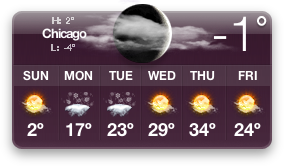For the past week my right big toe has been in varying stages of infection. When this happens, I leave it alone, and usually it resolves itself in a few days.
By Friday, however, it was clearly demanding attention. It was and is red, hot, swollen, and tender. There seemed to be two options: amputation or antibiotics. Despite temptation, I opted to start with the latter supplemented with an antibiotic bandage.
Last night when J. and I returned from Whole Foods, I took my shoes and socks off first thing — and spotted blood on the bandage.
“Hmmm,” I said, “where did that come from?”
“What?” J. said, focused on checking his mail using my DSL connection.
“Blood,” I said, removing the bandage carefully. Usually my toe doesn’t bleed. “Oh,” he said. Nothing ruffles him when he’s focused, although spurting blood might get his attention.
I peered at the bandage. I took off my glasses and peered more closely at the bandage flecked with red and at the toe, which was still red, hot, swollen, and tender, but which was definitely not bleeding.
Then it hit me what the “blood” was.
“Hmmm, never mind, it’s the fuzz from my red socks,” I said. “Hmmm,” he said.
I may be more imaginative than intelligent, but at least I’m methodical.
Which brings me to tomorrow.
As far as I know, I’m signed up for a class on CPR/AED (automated external defibrillator). This should prove interesting, because this is the kind of practical, useful information and work for which I am ill suited. In a society where every pair of hands is needed to do something productive, like cooking, sewing, or crafting, I would be voted off the island immediately.
I’m reminded of my Girl Scout days, probably at least 35 years ago. One day, probably on a Sunday afternoon, I found myself in what I think was a community center or church in a neighboring town, participating in a first-aid class. The atmosphere of the place, which with its folding chairs and whitewashed walls and echoes of spaghetti dinners was perfectly ordinary and even institutional, combined with the dreariness of the day seemed to inspire my imagination with an impossible-to-describe feeling of both homeliness and novelty. Places that were new to me always left me feeling strange, probably because I did not get to go to many of them.
All I remember of the class is demonstrating our newly acquired skills on an adult dummy and a baby doll.
There was one other thing. I came away thinking that tourniquets were bad, a very last resort, because they meant amputation. This impression was so strong that I had it for years, until I was older, less imaginative, and more knowledgeable, when I finally understood the purpose and use of a tourniquet and that limbs didn’t fall simply because one had been used.
While this is step one of enlightenment, it doesn’t mean I could ever learn to apply one.
I think of one of my Girl Scout friends, an eminently practical girl who undoubtedly breezed through the program and who used to wonder occasionally how someone so “smart” could be so stupid, and who still seems to feel the same way about me. I suspect she is not alone.
And I think of the idealist protagonist of Anne of Green Gables, whose daydreaming inattention to food storage led to a mouse drowning in the pudding, to her foster mother’s chagrin. I can see Anne, ever the dramatist, mistaking red fuzz for blood (and citing an appropriate poem for the occasion) and envisioning amputation while bypassing the reason.
Thirty years of adult life and loneliness have stifled some, perhaps much, of my imagination and my tendency to skip the details and to react before thinking, and out of necessity made me a little more pragmatic and practical. The cares of adulthood seem to be the enemy of imagination. We don’t have the time or the luxury not to be practical, efficient, and responsible — all things that sap the joy out of living.
I miss that Girl Scout, who was both bright and stupid and who frustrated everyone with a practical nature.
And I could use a friend like Anne.

